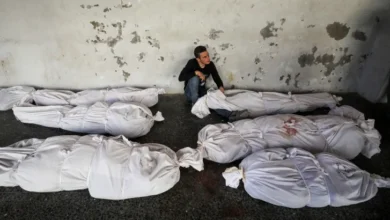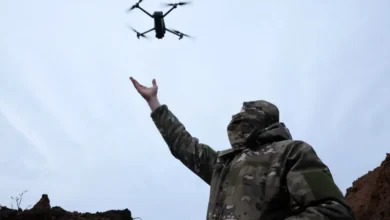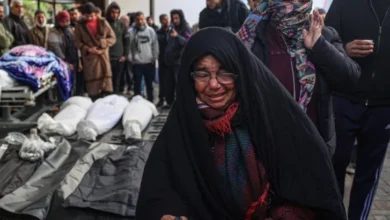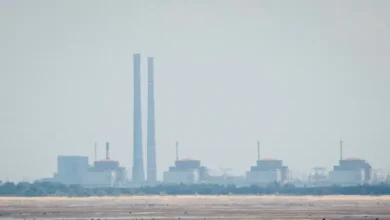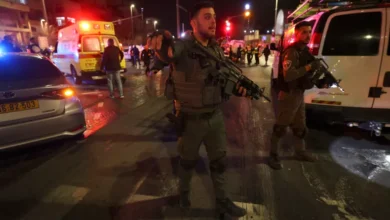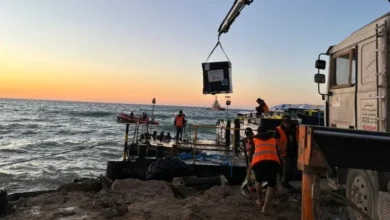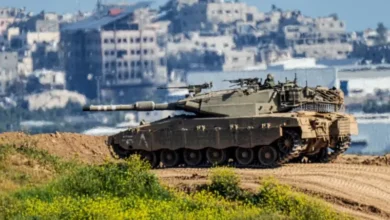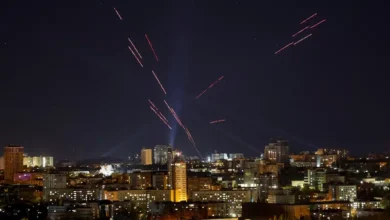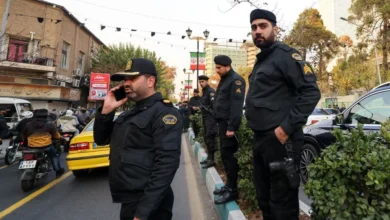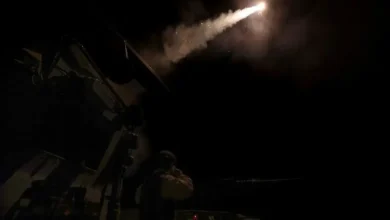Oman urges de-escalation during Iran FM visit amid rising regional tensions
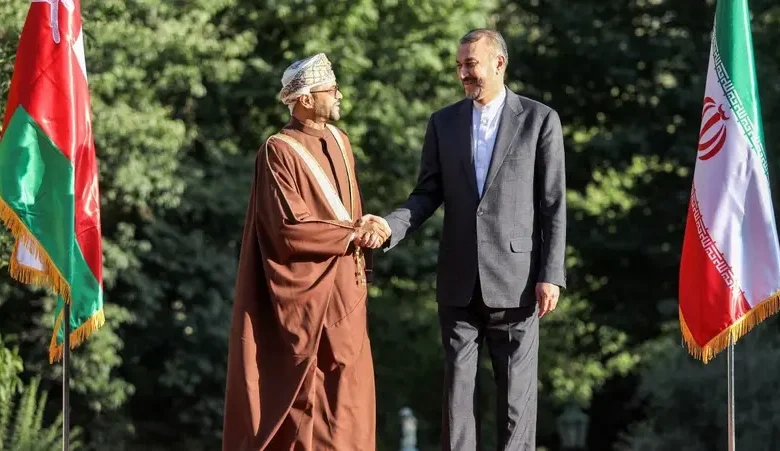
Oman’s foreign minister on Sunday called for de-escalation during a visit by his Iranian counterpart who started a regional tour in Muscat where he met a spokesman for Yemen’s Houthi militia.
The visit by Iranian Foreign Minister Hossein Amir-Abdollahian came almost a week after an air strike in Damascus levelled the Iranian embassy’s consular annex and further raised regional tensions.
The attack, which Tehran blamed on Israel, killed seven Islamic Revolutionary Guard Corps members including two generals. Iranian leaders have called for retaliation.
“Oman supports efforts to reduce escalation in the region, address various issues and conflicts, and for the voice of wisdom to prevail,” Foreign Minister Sayyid Badr al-Busaidi said in a statement carried by the official Oman News Agency.
Oman has long been a mediator between Tehran and the West.
“The Palestinian issue is the main issue that we are working to overcome,” the minister said.
Amir-Abdollahian praised growing ties between Iran and Oman, thanking the sultanate for its condemnation of the Damascus strike.
The Gulf country is also a mediator in the war between Yemen’s Iran-backed Houthis and Yemen’s internationally recognized government.
The Houthis have launched dozens of missiles and drone strikes on shipping in the Red Sea and the Gulf of Aden since November. They say they are acting in support of Palestinians during Israel’s war against Hamas in the Gaza Strip.
During a meeting with Houthi spokesman and senior official Mohammed Abdelsalam in Muscat on Sunday, Amir-Abdollahian hailed “the brave support of the Yemeni nation for the oppressed Palestinian nation,” Iran’s foreign ministry said.
During the meeting, Amir-Abdollahian, like other Iranian leaders, vowed revenge for the attack in Syria.
He said his country “will use its recognized rights within the framework of international law to hold the criminal aggressors accountable and punish them,” the ministry said.
Yahya Rahim Safavi, an adviser to Iran’s supreme leader, warned Sunday that Israeli embassies are “no longer safe” after the strike.
There was no immediate comment from Israel, Iran’s arch foe.
The consular strike has further raised Middle East tensions already inflamed by the war in Gaza and related violence involving Iran-backed groups in Lebanon, Syria, Iraq and Yemen.
At a joint press conference with the Houthi official, Amir-Abdollahian called Israel’s embassy strike “a new page of this regime’s warmongering and its efforts to expand the war in the region”.
According to Syrian pro-government newspaper Al-Watan, Amir-Abdollahian travels on to Damascus on Monday for an official visit.
Fighting in Yemen between the Houthis and the government backed by a Arab-led coalition has largely remained on hold since a United Nations-brokered ceasefire in April 2022.
Amir-Abdollahian expressed support “for the process of peace talks in Yemen,” his ministry said.
